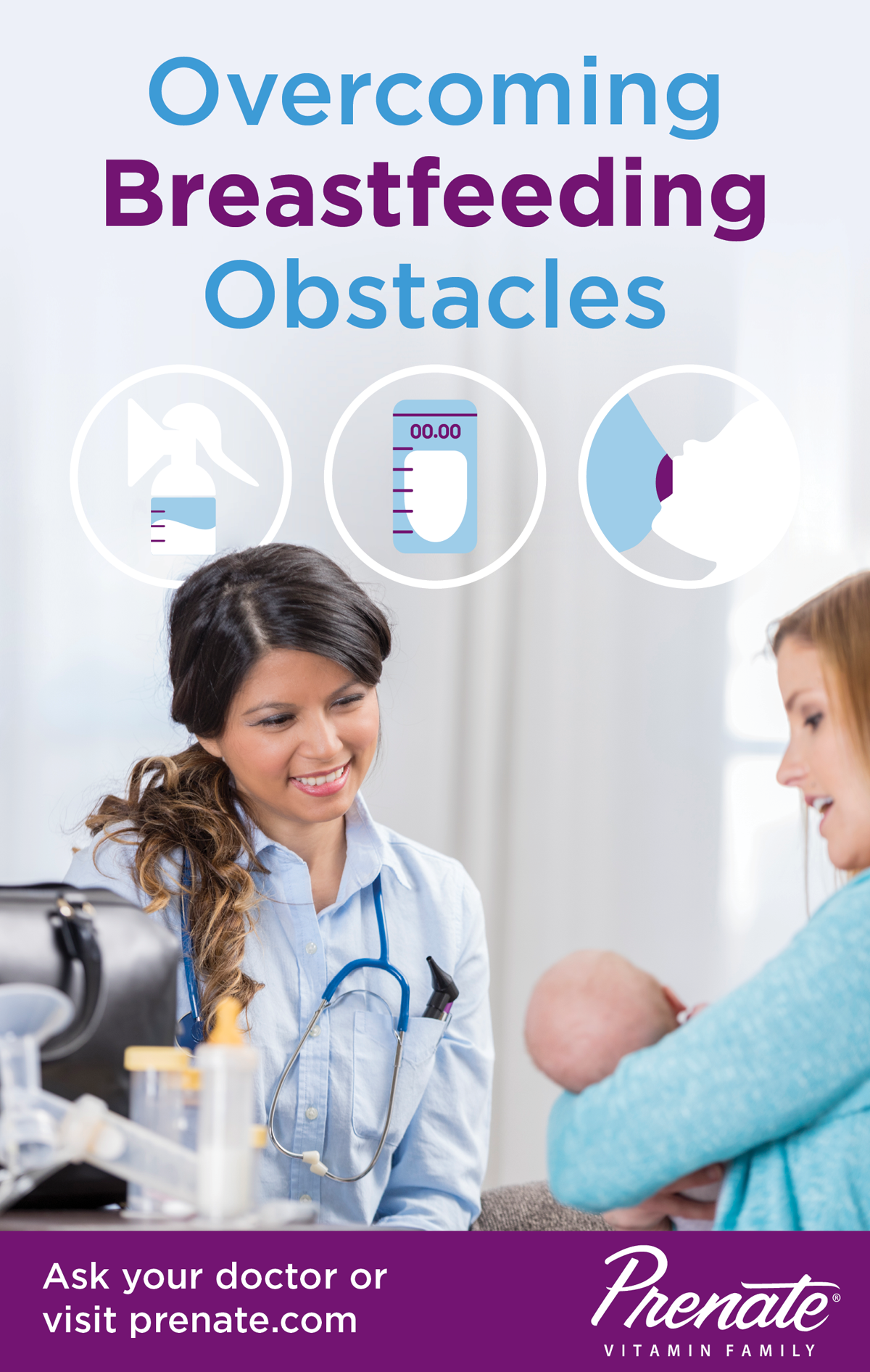Why American Moms Don’t Breastfeed for Long
August 3, 2017
August is Breastfeeding Awareness Month, a time to help educate the public about the importance of breastfeeding and its benefits to mothers and their babies. According to the Centers for Disease Control and Prevention (CDC), new mothers may be letting the breastfeeding obstacles outweigh the benefits.
CDC data shows that 81 percent of new mothers breastfeed at some point. That number drastically decreases to 44 percent for mothers who breastfeed exclusively for three months.1 The percentage dips even further, to 22 percent, for moms who breastfeed exclusively for 6 months.1
Because of the many health benefits to the baby, breastfeeding exclusively instead of using formula is encouraged by many pregnancy support and advocacy organizations. Both the American College of Obstetricians and Gynecologists and the American Academy of Pediatrics recommend that mothers exclusively breastfeed their babies for the first six months.2 As new foods are introduced, breastfeeding should continue up to the baby’s first birthday (12 months).2
Overcoming Early Obstacles to Breastfeeding
Many women report pain or difficulty with breastfeeding. During the first few weeks after a baby is born, breastfeeding or mil expression through pumping, should occur every two to three hours. The frequency of this schedule can cause nipples to become cracked or bleed, particularly if a baby does not have a good latch. If a mother’s frustrations and anxiety grow around each feeding, it can make her more willing to abandon her efforts to breastfeed.
If a new mom does not talk to her doctor or lactation consultant about breastfeeding, she may not realize that help is available for her and her baby. She may feel so defeated that she gives up on breastfeeding. Often all she and her baby need is help with establishing a proper latch. Once this is achieved, breastfeeding should no longer hurt.
The best way to overcome early obstacles to breastfeeding is to reach out for support. During their third trimester, expecting moms should talk to a health care provide about their intentions to breastfeed. They should ask for recommended resources to prepare themselves, as well as a list of lactation consultants.
Many hospitals have lactation specialists on-site who will meet with new mothers before and after delivery. New moms should ask for the contact information of the lactation consultant for follow-up questions or issues that may arise once their babies are home.
There are also a number of lactation support and advocacy organizations nationwide. Below are a few that include online tools to find a lactation consultant.
- United States Lactation Consultant Association – https://uslca.org
- International Lactation Consultant Association – http://www.ilca.org/why-ibclc/falc
Preparing for Breastfeeding
Lactation resources can come with a cost, and private-practice lactation consultants are not always covered by insurance. Expecting mothers and fathers should research their insurance policies so they are clear if lactation consultations are covered and what expenses they may need to pay out-of-pocket.
As part of the breastfeeding preparation process, women should consider their own in- creased nutritional needs and those of their babies. Prenate® Restore is a once-daily, lactose- free and gluten-free softgel vitamin that supports expecting moms and babies during pregnancy and postpartum.
The nutrients in Prenate® Restore include folic acid, DHA and probiotics, which can help infants achieve optimal growth and promote brain, immune system and gut development.3-5 Prenate® Restore is also appropriate during pregnancy, which means that expecting moms can start supplementation before their babies arrive and continue Prenate® Restore through delivery and postpartum. Talk to your doctor to see if Prenate® Restore is right for you.
You Are About To Leave This Website
By clicking continue, this link will take you to a website to which Alora Pharmaceuticals Policies & Terms of Use do not apply. Alora and its subsidiaries do not control the content or accuracy of third-party websites and assume no responsibility for their use.











